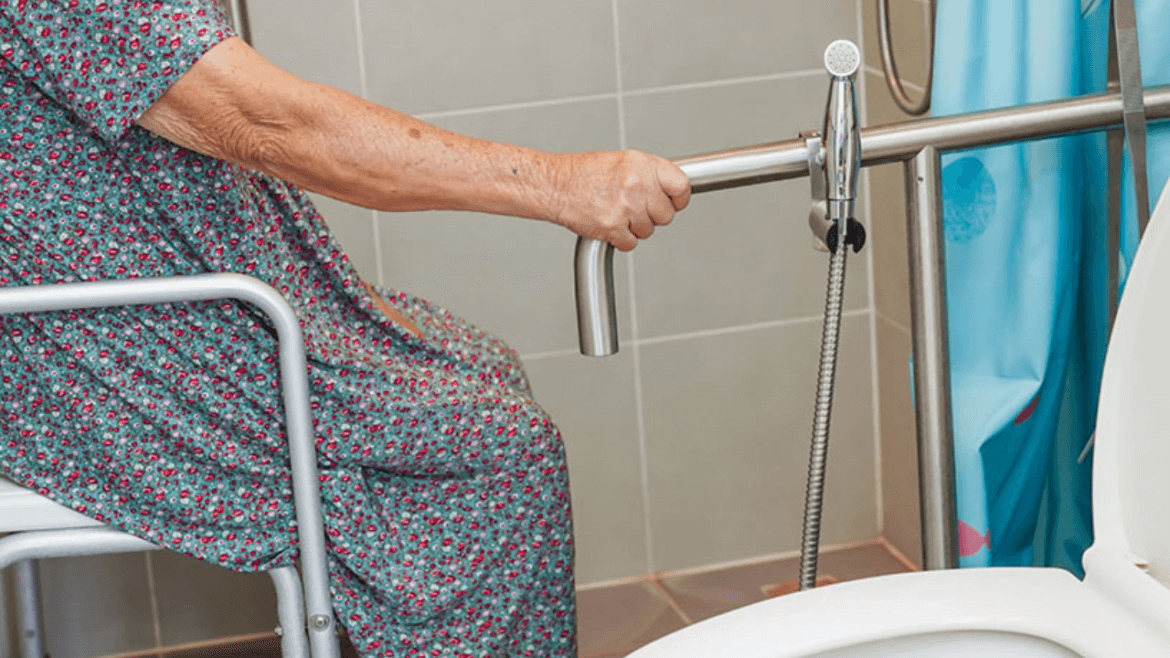Did you know that Leading Edge Senior Care has a Dementia Support Group? We meet monthly in Mesa. For more details <click here>
Does A Senior Need A Shower Chair?
The simple act of taking a shower can become a daunting task for seniors facing mobility issues or balance challenges. Aging often brings physical changes that make once-routine activities more difficult.
For many seniors, ensuring safety while maintaining personal hygiene becomes a pressing concern. A shower chair might seem like a minor addition to a bathroom, but its role in promoting safety and independence is significant. Understanding the benefits and recognizing when a shower chair becomes essential can make a world of difference in a senior’s daily life.
Recognizing the Risks Seniors Face in the Bathroom
Bathrooms are among the most hazardous areas in a home for seniors. Wet and slippery surfaces combined with limited space increase the likelihood of accidents. Falls in the bathroom are alarmingly common and can lead to severe injuries such as fractures or head trauma. The fear of falling often discourages seniors from bathing regularly, compromising their hygiene and overall well-being.
Age-related conditions such as arthritis, weakened muscles, or chronic pain can make standing for extended periods difficult. Balance issues, often caused by conditions like vertigo or neurological disorders, add another layer of risk. In these circumstances, a shower chair can provide stability, making bathing safer and more comfortable.
When Is It Time to Consider a Shower Chair?
The decision to introduce a shower chair into a senior’s routine depends on several factors. One clear sign is if a senior struggles with balance or has experienced a fall in the bathroom. Even near-miss incidents—moments when a slip was narrowly avoided—should not be ignored. These situations highlight the need for preventative measures to ensure safety.
Another indicator is noticeable difficulty or discomfort during bathing. Seniors who avoid showers due to the physical strain of standing or those who frequently request assistance may greatly benefit from a shower chair. It’s also worth considering if a senior has recently undergone surgery or is recovering from an injury, as their temporary mobility challenges might necessitate additional support in the bathroom.
The Benefits of Using a Shower Chair
A shower chair provides more than just a safe seating option—it fosters independence and dignity. Many seniors take pride in managing their personal hygiene without relying on caregivers. A shower chair empowers them to bathe comfortably and safely, preserving their autonomy.
These chairs also reduce the physical effort required during bathing, making the process less exhausting. For seniors with conditions like heart disease or chronic pain, conserving energy is crucial. Additionally, shower chairs often come with features such as backrests, armrests, and non-slip materials, enhancing both comfort and security.
Caregivers, too, experience relief when a shower chair is introduced. Assisting a senior in the shower can be physically demanding and stressful. With a sturdy and reliable seat in place, caregivers can provide help more effectively, minimizing strain on both themselves and the senior.
Types of Shower Chairs to Consider
The market offers a variety of shower chairs tailored to different needs. Simple models with basic seating and anti-slip legs work well for seniors with minor balance issues. For those requiring additional support, chairs with backrests and armrests provide extra stability.
Transfer benches, a variant of shower chairs, are ideal for seniors with significant mobility challenges. These benches extend beyond the shower’s edge, allowing users to sit and slide into the shower area safely. Adjustable-height chairs cater to seniors of varying statures, ensuring comfort and proper posture.
When selecting a shower chair, prioritize durability, weight capacity, and ease of cleaning. Non-slip rubber tips on the chair’s legs are essential to prevent movement during use.
Transitioning to a Safer Routine
Introducing a shower chair requires patience and sensitivity. Seniors may initially resist the idea, perceiving it as a sign of declining independence. Framing the chair as a tool for enhancing safety and comfort can help ease concerns. Encourage open discussions about their needs and preferences to make the transition smoother.
Caregivers and family members should emphasize the importance of preventing accidents rather than reacting to them. Highlighting the potential for injury without proper support can underscore the value of a shower chair. Once implemented, the improvement in the senior’s confidence and comfort often speaks for itself.
Maintaining Hygiene and Quality of Life
Hygiene plays a vital role in a senior’s physical and emotional health. Regular bathing helps prevent skin infections and other health complications. Beyond physical benefits, the act of bathing can be a source of relaxation and mental refreshment.
A shower chair not only makes the process safer but also restores a sense of normalcy. Seniors who feel confident and secure in their daily routines are more likely to maintain them, contributing to overall well-being. The small investment in a shower chair can yield significant returns in terms of safety, health, and quality of life.
A Small Change with a Big Impact
For seniors and their caregivers, addressing bathroom safety should be a top priority. A shower chair may seem like a simple solution, but its impact is profound. It provides stability, fosters independence, and ensures that a fundamental part of daily life remains accessible.
Recognizing the signs early and implementing this change can prevent injuries and improve a senior’s overall quality of life. Safety and dignity go hand in hand, and a shower chair is a step toward preserving both.

